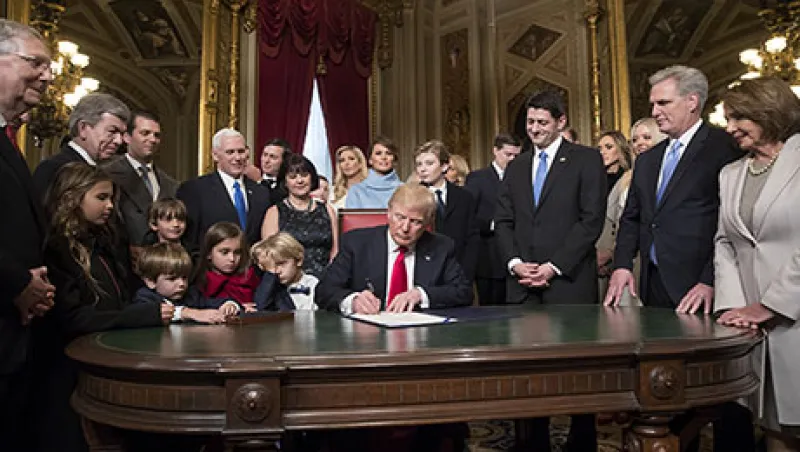
U.S. President Donald Trump, center, prepares to formally sign his cabinet nominations into law with U.S. House Speaker Paul Ryan, a Republican from Wisconsin, from second left, House Majority Leader Kevin McCarthy, a Republican from California, and House Minority Leader Nancy Pelosi, a Democrat from California, during the 58th presidential inauguration in Washington, D.C., U.S., on Friday, Jan. 20, 2017. Trump became the 45th president of the United States today, in a celebration of American unity for a country that is anything but unified. Photographer: J. Scott Applewhite/Pool via Bloomberg
J. Scott Applewhite/Bloomberg

